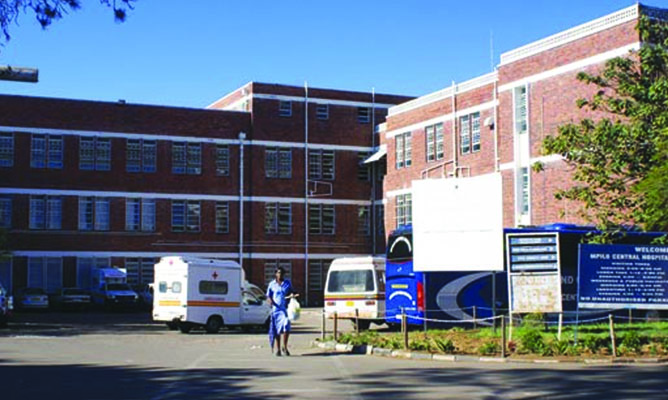
BY MOSES MUGUGUNYEKI
CORPSES continue to pile up at Mpilo Central Hospital mortuary in Bulawayo due to delays by relatives in collecting the bodies for burial and authorities are reportedly mulling conducting pauper burials.
Mpilo Central Hospital is the second largest health facility in the country after Parirenyatwa Group of Hospitals in Harare.
Of late, it has been plagued by power failures that are disrupting service provision, including the functioning of its mortuary.
Last week, authorities at the 900-bed health institution said the situation at the mortuary left a lot to be desired.
“The other issue we have is about the mortuary. Currently, there are about 400 bodies, which is way above the facility’s body carrying capacity,” said Mpilo Central Hospital acting chief executive and clinical director Xolani Ndlovu.
Mpilo mortuary has a carrying capacity of 30 bodies.
He said carrying out pauper’s burials to reduce pressure on the mortuary was the panacea, although it involved a lot of processes.
- Chamisa under fire over US$120K donation
- Mavhunga puts DeMbare into Chibuku quarterfinals
- Pension funds bet on Cabora Bassa oilfields
- Councils defy govt fire tender directive
Keep Reading
According to the country’s statutes, bodies that are not claimed after a period of nine months should be given pauper’s burials by the State.
Ndlovu said the situation at the mortuary was exacerbated by intermittent power cuts that had seen the hospital relying on back-up generators, which are consuming 1 000 litres per day.
He said the lives of about 465 patients, including 81 children in the neonatal ward and 98 patients in the surgical wards admitted at the hospital, were at risk due to power outages.
Meanwhile, Tsholotsho District Hospital is overwhelmed by its overloaded mortuary at a time the health facility is enduring prolonged power cuts.
Tsholotsho district medical services administrator Gerald Chakandibata said the situation at the mortuary was dire.
“Our mortuary is too small. It has a capacity to carry five bodies, but currently there are nine,” he said.
“The situation is worsened by these rampant power cuts we are experiencing here in Tsholotsho.”
He said the unreliable power supply had had ripple effects on water provision at the health facility.
Tsholotsho District Hospital started operating in 1951 as a rural health centre before it was upgraded to a district hospital in 1991.











